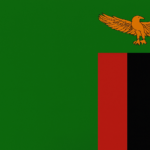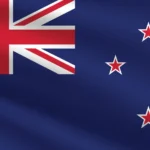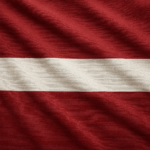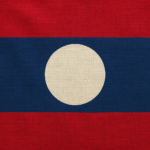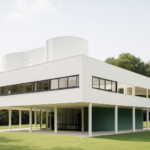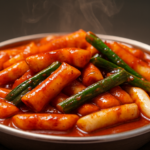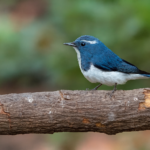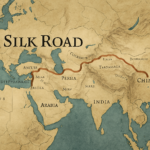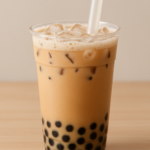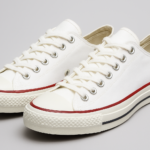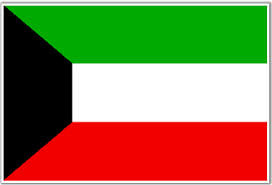
Kuwait comprises of nine islands which are mainly oil rich desserts. It is officially known as the “State of Kuwait.” Kuwait City is the capital of Kuwait that is situated on Kuwait Bay.
Kuwait gained independence from Great Britain on June 19, 1961.
Majority of the people in Kuwait follow Islam followed by Christian, Hindu and Parsi religions. Islam is the official religion of Kuwait.
One of the hottest countries in the world especially between June to August. Rainfall averages 2 days in the year. Kuwait has several sandstorms every year.
Kuwait follows the system of ‘Constitutional Monarchy’ with a Parliamentary System of government.
The official currency used in the Kuwaiti dinar. The name means “Fortress built near water.”
Kuwait is officially known as the ‘State of Kuwait’.
The official language of Kuwait is Arabic, but English is also widely spoken and understood.
The main ethnic groups in Kuwait include Kuwaiti, other Arab, South Asian and Iranian.
Majority of the people in Kuwait follow Islam, followed by Christian, Hindu and Parsi religion.
The currency of Kuwait is Kuwaiti Dinar.
The capital of Kuwait is Kuwait City.
Kuwait follows the system of ‘Constitutional Monarchy’, with a Parliamentary System of government.
Kuwait became an independent country, after the end of British Protectorate, on 19th June 1961.
Apart from having world’s fifth largest proven oil reserves, Kuwait is the fourth richest country in the world in terms of per capita income.
Kuwait’s oil fields were discovered and exploited in the 1930s.
Petroleum and petroleum products make up around 95 percent of export revenues, and 80 percent of government income, in Kuwait.
In 1990, Kuwait was invaded and annexed by neighboring Iraq. The occupation lasted seven month and ended after direct military intervention by United States-led forces.
The island of Failaka in Kuwait was an ancient trading post.
Kuwait came under the leadership of the Al Sabah family in 1750s, with semi-autonomy from the Ottomans.
Kuwait entered the Special Treaty of Friendship with Britain in 1899, to prevent the occurrence of Ottoman direct rule.
The borders between Kuwait, Iraq and Saudi Arabia were agreed in the 1920s and 1930s.
Kuwait became a member of the Arab League in 1961 and that of United Nations in 1963.
Kuwait was the first Arab country in the Gulf to have an elected parliament.
Full political rights were granted to women in Kuwait, in 2005.
Kuwaiti men usually wear the national dress of long white dishdashes and white headcloths, while women wear yashmaks.
Kuwaiti food is primarily based on the staple product of rice.
Kuwait is one of the smallest countries in the world.
In 1773 Kuwait was hit by the plague or pestilence and most of the Kuwaitis died.
In 1913 the first Kuwaiti hospital was opened.
The first girls school was opened in 1937 and was called the ‘Middle School’.
The first Bank opened in Kuwait in 1942.
The first postage stamp was issued in 1947 on the occasion of the 26th year of Sheikh Ahmed Al-Jaber’s rule of Kuwait.
The first sports club was established in 1949.
The first secondary school for boys was opened in 1953 and called ‘Shuwaikh School’.
The first official newspaper ‘Kuwait Today’ was issued on the 11th of December, 1954.
The first secondary school for girls was opened in 1959 and called ‘Murgab’.
The first news broadcast on the radio was on June 1957.
In 1961, the Indian rupia was replaced by the Kuwaiti dinar, the first official currency.
In 1969, the Central Bank was opened.
The first Kuwaiti female teacher was Mariam Abd Al-Malik.
The national bird of Kuwait is the falcon. It is found everywhere and also seen on the currencies and stamps.
Kuwait has the second-most free economy in the Middle East. It is the fourth-richest country in the world in terms of per capita income.
Petroleum and petroleum-products made up nearly 85% of export revenues and 80% of government income in Kuwait. Major industries include construction, shipping, cement, water desalination, construction materials and financial services.
The United Sates is their largest supplier of goods and services. U.S and Kuwait enjoy strong economic ties.
FAQs about Kuwait
General Information:
- Where is Kuwait located?
- Kuwait is located in the northwestern corner of the Arabian Gulf. It shares borders with Iraq to the north and Saudi Arabia to the south. Its eastern border is along the coast of the Arabian Gulf.
- What is the population of Kuwait?
- The population of Kuwait is made up of both Kuwaiti citizens and expatriates. It is important to know that population numbers change, and it is best to search for the most current data from official Kuwaiti government statistical resources.
- What is the climate like in Kuwait?
- Kuwait has a desert climate, characterized by very hot summers and mild winters.
- Summers (May to October) are extremely hot, with temperatures often exceeding 45°C (113°F).
- Winters (November to April) are cooler, with occasional rainfall.
- Dust storms are common, especially during the summer months.
- Kuwait has a desert climate, characterized by very hot summers and mild winters.
- What is the official language of Kuwait?
- The official language is Arabic. English is widely spoken, particularly in business and among expatriates.
- What is the currency of Kuwait?
- The currency is the Kuwaiti Dinar (KWD). It is often one of the strongest currencies in the world.
Travel and Visas:
- Do I need a visa to travel to Kuwait?
- Yes, most nationalities require a visa to enter Kuwait. Visa requirements vary depending on your nationality.
- Visas on arrival and e-visas are available for citizens of certain countries.
- It’s essential to check the latest visa requirements with the Kuwaiti embassy or consulate in your country before traveling.
- It is also very important to know that having an Israeli stamp in your passport may cause you to be denied entry into Kuwait.
- What are some of the popular tourist attractions in Kuwait?
- Some popular attractions include:
- Kuwait Towers: Iconic landmarks offering panoramic views of the city.
- The Grand Mosque: A stunning example of Islamic architecture.
- Souq Al-Mubarakiya: A traditional market offering a glimpse into Kuwait’s heritage.
- The Avenues Mall: One of the largest shopping malls in the Middle East.
- Failaka Island: An island with historical ruins.
- Some popular attractions include:
- What are some cultural considerations for visitors to Kuwait?
- Kuwait is a Muslim country, and visitors should be respectful of local customs and traditions.
- Dress modestly, especially in public places.
- Public displays of affection are generally discouraged.
- Ramadan is a holy month for Muslims, and visitors should be mindful of fasting practices during this time.
Economy and Business:
- What is the main industry in Kuwait?
- Kuwait’s economy is heavily reliant on oil production. It has some of the world’s largest oil reserves.
- Is it safe to do business in Kuwait?
- Kuwait is generally considered a safe place to do business. However, it’s essential to be aware of local business practices and regulations.
- What are some of the key sectors for investment in Kuwait?
- Key sectors for investment include:
- Oil and gas
- Infrastructure
- Finance
- Real estate
- Key sectors for investment include:
Important Cultural and Legal Notes:
- What are some of the legal restrictions in Kuwait?
- Kuwait has strict laws, and it’s important to be aware of them. Some key points:
- What is the status of women in Kuwait?
- Women in Kuwait have made significant strides in education and employment. However, there are still some cultural and legal restrictions.
